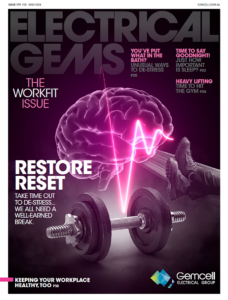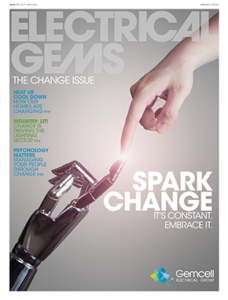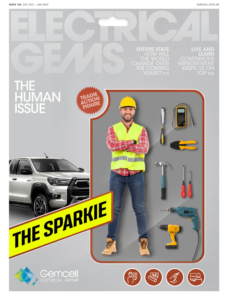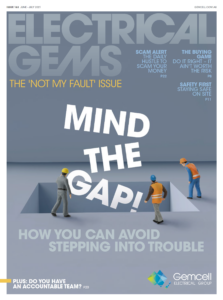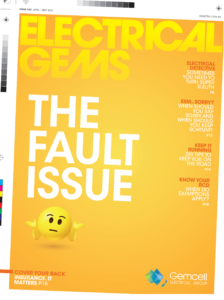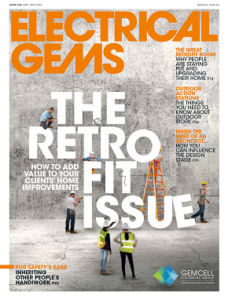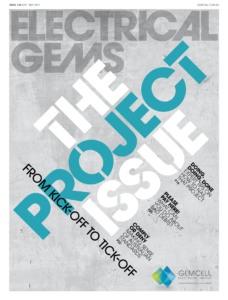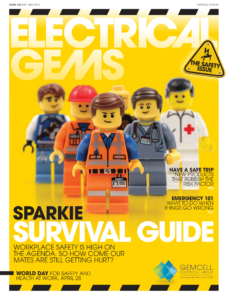Powering minds: Why mental health matters in Australia’s electrical industry
From installing systems in new builds to manufacturing cables and moving materials through wholesale hubs, Australia’s electrical industry is fast-paced and demanding. While safety gear and compliance procedures are routine, mental health support still lags behind. It’s time that changed, says the Australian Cable Initiative.
Whether on-site, on the factory floor, or behind a sales desk, people across the electrical sector are experiencing high levels of stress, fatigue, and burnout. The industry is built on tight deadlines, physical labour, shift work, and fluctuating demand – all of which create pressure that can erode mental wellbeing over time.
An industry under strain
Electrical contractors often deal with irregular hours, demanding clients, and high expectations for quality and speed. In associated manufacturing industries, shift work, repetitive tasks, and production targets are mentally and physically exhausting. Wholesalers, especially those in high-turnover environments, juggle logistics, customer service, and fast-paced sales – leaving little time to breathe.
Despite these differences, the common denominator is clear: stress is part of the job. Unfortunately, so is silence. There’s still a widespread reluctance to talk about mental health in trade environments, particularly among men. According to MATES in Construction, suicide rates among Australian construction workers are nearly double the national average. Electricians are among those most at risk.
It’s a safety issue
Mental health isn’t just a personal issue – it’s a workplace one. A stressed-out worker is more likely to make mistakes, take unnecessary risks, or withdraw from their team. The result? Greater safety hazards, reduced productivity, and higher turnover.
But when mental health is prioritised, the whole business benefits. Workers are more focused, engaged, and collaborative. Morale improves, absenteeism drops and retention increases – outcomes that are vital in a sector already dealing with skill shortages.
What’s being done?
Members of the Australian Cable Initiative (ACI) are taking the mental health of their employees very seriously and are implementing programs to support their staff and customers.
One of the manufacturing members recently collaborated with a university to study the stresses and strains imposed on workers’ bodies during their shifts.
The university developed suits that were worn during the worker’s shift. The suits were fitted with numerous strain gauges, accelerometers and other tactile measuring devices. The data was collected and then used to analyse which particular tasks and movements caused stress on the body. The objective being to reduce pain, which is a significant contributor to mental anguish. Having understood the actions that caused the body stress, they were able to re-engineer the process to eliminate these causes and help improve the operator’s mental position.
Another of the ACI’s manufacturing members runs events including:
- RUOK? Day during Global Safety Week.
- Training for mental health first aid and resilience, online wellbeing seminars for men’s and women’s health.
- On-site bootcamp and physio (the physical to support the mental).
- Access to Employee Assistance Provider, Lifeworks Health Services – a free and confidential counselling service available to employees and their families.
Members of the ACI are developing environmental, social, and governance (ESG) programs and incorporating these into their business plans.
One member of the ACI even incorporates wellness into their customer events by inviting experts like Warren Davies (The Unbreakable Farmer) to talk to the audience about resilience and mental wellbeing.
As already mentioned, Employee Assistance Programs are becoming more commonplace, and together with other initiatives like staff development, help to motivate employees and reduce stress.
Furthermore, industry-wide programs like MATES in Construction and Beyond Blue are providing crucial tools and support to businesses of all sizes. Toolbox talks, site posters, and confidential hotlines are helping break down stigma and connect workers with help early – before issues escalate.
Steps every employer can take
Mental health support doesn’t require a big budget – just commitment and consistency. Here’s how businesses can help:
Talk about it
Make mental health a regular part of site and team discussions. Leadership sets the tone.
Offer training
Equip managers and team leads to spot signs of mental distress.
Promote balance
Encourage regular breaks, reasonable hours, and flexibility where possible.
Share resources
Ensure workers know where to turn for help – internally or externally.
Build a supportive culture
Encourage mateship and check-ins among colleagues.
The future of the industry
As the electrical sector embraces new technologies and rising demand, its success will depend on the wellbeing of its people. Whether you’re pulling cable, packing pallets, or wiring a switchboard, mental health matters.
It’s time we recognised that the strongest connections in our industry aren’t the electrical – they’re human.



















